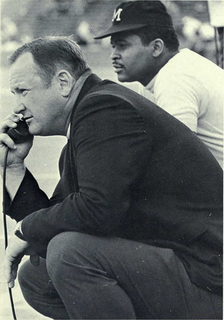A Quote by Guilherme Leal
I pretty much believe, as everyone in the B Team does, that business must succeed beyond the bottom line. More important than profits is how you get to them. Measuring financial earnings and losses only is definitely not enough and has led us astray from creating a better world for all.
Related Quotes
At the bottom of philosophy something very true and very desperate whispers: Everyone is hungry all the time. Everyone is starving. Everyone wants so much, much more than they can stomach, but the appetite doesn't converse much with the stomach. Everyone is hungry and not only for food - for comfort and love and excitement and the opposite of being alone. Almost everything awful anyone does is to get those things and keep them.
A good school is a relative concept, and the better schools are located in more expensive neighborhoods. But when everyone bids more for a house in a better school district, they succeed only in bidding up the prices of those houses. As before, 50 percent of all children will attend schools in the bottom half of the school quality distribution. As in the familiar stadium metaphor, all stand, hoping to get a better view, only to discover that no one sees better than if all had remained seated.
Some people would argue the other side: that the business of business is business, and companies should only be focused on profits. But in today's world, I don't think corporations can only be focused on profits, because they are inextricably linked with the communities that they serve. I do not believe you can be a leader in your industry without being a leader in your community. It's a fundamental shift in how you think about business.
Ben and I built Ben & Jerry’s on the idea that business has a responsibility to the community and environment If you open up the mind, the opportunity to address both profits and social conditions are limitless. It’s a process of innovation If we were going to have a business we were going to have one that was consistent with our values We measured our success not just by how much money we made, but by how much we contributed to the community. It was a two-part bottom line.
By all indications, American business leaders are more adept at creating business strategies than they are skilled at human capital management. American entrepreneurs are world-beaters when it comes to creating new businesses, and corporate managers are adept at using the latest marketing, financial, and technological practices.
In many ways, large profits are even more insidious than large losses in terms of emotional destabilization. I think it's important not to be emotionally attached to large profits. I've certainly made some of my worst trades after long periods of winning. When you're on a big winning streak, there's a temptation to think that you're doing something special, which will allow you to continue to propel yourself upward. You start to think that you can afford to make shoddy decisions. You can imagine what happens next. As a general rule, losses make you strong and profits make you weak.
I do not recall another period when ‘faith’ was as popular as it is today. ‘If only we believe hard enough we'll make it somehow.’ So goes the popular chant. What you believe is not important. Only believe... What is overlooked in all this is that faith is good only when it engages truth; when it is made to rest upon falsehood it can and often does lead to eternal tragedy. For it is not enough that we believe; we must believe the right thing about the right One.
Even with a margin of safety in the investor's favor, an individual security may work out badly. For the margin guarantees only that he has a better chance for profit than for loss - not that loss is impossible. But as the number of such commitments is increased the more certain does it become that the aggregate of the profits will exceed the aggregate of the losses.


































